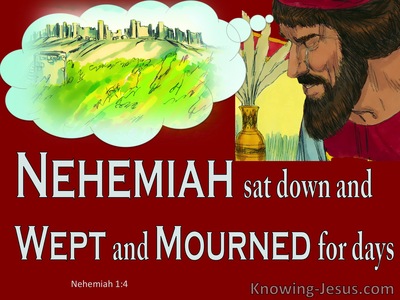◄ What Does James 2:17 Mean? ►
Even so faith, if it has no works, is dead, being by itself.
James 2:17(NASB)
Verse of the Day
When reading the Bible, it is always important to identify the context in which it is written, or the person, group of people, or nation to whom it is addressed. James makes it clear, right at the beginning of his epistle, that he is writing his letter to Church-age believers. However, we also note that he particularly addresses those from "the 12 tribes of Israel - who had been scattered among the nations," during a time of severe persecution.
James was specifically addressing his instructions to born-again Christians of Jewish descent, although his directive also relates to Church-age believers from a Gentile heritage. He starts to focus on the issue of favouritism. He makes it clear that showing partiality to certain people, differentiating between rich and poor, or passing judgement on a person's appearance, political position, or standing in the community, is unacceptable to the Lord Who is no respecter of persons. All are equal in the sight of God... whether Jew or Gentile, rich or poor, bond or free, young or old. Indeed, all members of Christ's Body should take notice of this important apostolic instruction to refrain from biased judgements and favouritism.
It is noticeable that after his initial comments on impartiality and negative discrimination, James appears to suggest adherence to the 10 commandments. Now, although pre-Cross Israel was certainly under the Law of Moses until Christ's crucifixion and Resurrection... and although many aspects of the Law certainly harmonise with Christian conduct and godly behaviour, the Bible makes it clear that Church-age believers, whether Jew of Gentile, are not under the Law as a rule of life. The Lord Jesus, not the Mosaic Law, is the pattern which Christians in the Church-age are instructed to follow.
It is under these circumstances that James starts to address the important issue of faith - a living faith - a demonstrable faith - a faith that honours God and demonstrates true Christian character. He quite correctly states that Christian faith should be accompanied by acts of kindness, good deeds, and worthy works. He explains that good works, kind actions, and generous gestures, should be the identifying mark of every child of God - and no believer would argue with this position.
However, this verse causes certain Christians some concern. They fear that if a Christian does not demonstrate good works in their life, their faith is dead - which they interpret to mean that they have lost their eternal salvation. However, when the whole council of God is sought, it is very evident this position conflicts with the vast majority of Scripture which clearly teaches that we are saved by grace, through faith - and not by works lest any man should boast.
James is pointing out that a lack of good works in the life of a Christian demonstrates dead faith. However, dead faith does not equate to loss of salvation as many teach, but rather loss of reward. God has prepared good works for each one of his children to carry out in their Christian life. Works that are carried out in the strength of God rather than through our own efforts, are GOOD works which will be rewarded. They are good works that are fulfilled through God's sufficient strength and they are described in Scripture as a 'living faith'.
The spiritual Christian who works the work of God in His power and strength, has a 'living faith'. The carnal Christian who does not work the works of God, has a 'dead faith'. The former has a living faith, while the latter who does not honour God in his Christian life, is said to have a 'dead faith'. The carnal Christian who tries to do good deeds in his own strength or does them for his own glory, has a dead faith. He remains saved by God's grace, because of his faith in Christ's finished work at Calvary, but he is saved as though by fire. Saved - but without any spiritual reward. Saved - but demonstrating a dead faith.
May we follow in the path of spiritual Christians and never forget that the Lord Jesus, not the Mosaic Law, is our pattern for life. Jesus is the One Church-age believers are instructed to follow. May we live by faith and carry out good works by faith so that we demonstrate a living faith to the glory of God. May we understand that it is not the good works we do that save us - but the good work that Christ carried out on the Cross on our behalf, by which we are saved.
May we live and work the works of God in HIS power and for HIS glory, for the rest of our days.
My Prayer
Heavenly Father, thank You for Jesus and the example He set in His life of a Man Who fulfilled the redemptive work that You had prepared for Him to do, willingly and in the power of the Holy Spirit. I pray that I may work the works of God and demonstrate a living faith that honours Your holy name. I pray that I will not try to carry out dead works in my own strength but rather that I will demonstrate a living faith using Jesus as the pattern for my Christian walk. This I ask in Jesus' name, AMEN.
Choose a Verse from James 2
James 2:17 Further Study
- James 2:17 in the Parallel Bible
- James 2:17 in the Thematic Bible
- James 2:17 Cross References
- James 2:17 Treasury of Scripture Knowing
- James 2:17 Sermons
- James 2:17 Prayers
- James 2:17 Images
- Choose Chapter
Never miss a post















